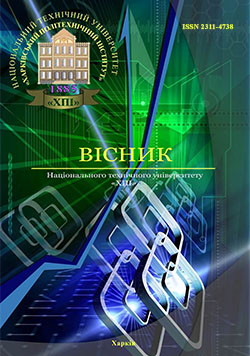METHOD FOR SELECTION OF PROJECT MANAGEMENT APPROACH BASED ON FUZZY CONCEPTS
DOI:
https://doi.org/10.20998/2413-3000.2017.1224.2Keywords:
project management approach, selection, fuzzy concepts, model, method, exampleAbstract
Literature analysis of works that devoted to research of the selection a project management approach and development of effective methods for this problem solution is given. Mathematical model and method for selection of project management approach with fuzzy concepts of applicability of existing approaches are proposed. The selection is made of such approaches as the PMBOK Guide, the ISO21500 standard, the PRINCE2 methodology, the SWEBOK Guide, agile methodologies Scrum, XP, and Kanban. The number of project parameters which have a great impact on the result of the selection and measure of their impact is determined. Project parameters relate to information about the project, team, communication, critical project risks. They include the number of people involved in the project, the customer's experience with this project team, the project team's experience in this field, the project team's understanding of requirements, adapting ability, initiative, and others. The suggested method is considered on the example of its application for selection a project management approach to software development project.References
Shostak I. V., Danova M. A. An approach to development a strategy of development methodologies application, taking into account the features of software projects. Aerospace Engineering and Technology. 2010, no 8 (75), pp. 179–185.
Boehm B., Turner R. Using risk to balance agile and plan-driven methods. IEEE Computer Society. 2003, no. 36 (6), pp. 57–66. doi : 10.1109/MC.2003.1204376.
Rehman A., Hussain R. Software project management methodologies/frameworks dynamics “A comparative approach” Proceedings of International Conference on Information and Emerging Technologies (ICIET). Karachi, Pakistan, 2007, pp. 1–5. doi : 10.1109/ICIET.2007.4381330.
Hanif T., Limbachiya M. Selecting the right project management approach using 6P. 24th World Conference IPMA (International Project Management Association). Istanbul, Turkey, 2010, pp. 183–189.
Cockburn, A. Selecting a project's methodology. IEEE Software. 2000, vol. 17, no. 4, pp. 64–71. doi : 10.1109/52.854070.
Kononenko I.V., Aghaee A. Model and Method for Synthesis of Project Management Methodology With Fuzzy Input Data. Bulletin of NTU" KhPI". Ser. : Strategic Management, Portfolio, Program and Project Management. 2016, no. 1 (1173), pp. 9–13. doi : 10.20998/2413-3000.2016.1173.2.
Bushuyeva N. S. Yaroshenko Yu. F., Yaroshenko R. F. Upravlinnya proektamy` ta programamy` organizacijnogo rozvy`tku [Program and Project Management of Organizational Development]. Kyiv, Sammit-Knyga, 2010. 198 p.
Ilas M. E., Ionescu S., Ilas C. Selecting the appropriate project management process for R&D projects in microelectronics. U.P.B. Sci. Bull. Ser : C. 2011, vol. 73, iss. 1, pp. 105–116.
Kononenko I., Kharazii А. The method of selection of the project management methodology. International Journal of Computing. 2014, vol. 13, iss. 4, pp. 240–247.
Zadeh L. A., Fuzzy sets. Inform. and Control. 1965, no. 8, pp. 338–353. doi : 10.1016/S0019-9958(65)90241-X.
Szmidt E., Kacprzyk J. Distances between intuitionistic fuzzy sets. Fuzzy Sets and Systems. 2000, no. 114, pp. 505–518. doi : 10.1016/S0165-0114(98)00244-9.
Kononenko I. V., Agai A., Lutsenko S. Yu. Application of the project management methodology synthesis method with fuzzy input data. Eastern-European Journal of Eenterprise Technologies. 2016, no. 2/3 (80), pp. 32–39. doi : 10.15587/1729-4061.2016.65671.
Downloads
Published
Issue
Section
License
Copyright (c) 2017 Igor V. KONONENKO, Svetlana Yu. LUTSENKO

This work is licensed under a Creative Commons Attribution-NonCommercial-ShareAlike 4.0 International License.
Our journal abides by the Creative Commons copyright rights and permissions for open access journals.
Authors who publish with this journal agree to the following terms:
Authors hold the copyright without restrictions and grant the journal right of first publication with the work simultaneously licensed under a Creative Commons Attribution-NonCommercial-ShareAlike 4.0 International License (CC BY-NC-SA 4.0) that allows others to share the work with an acknowledgement of the work's authorship and initial publication in this journal.
Authors are able to enter into separate, additional contractual arrangements for the non-commercial and non-exclusive distribution of the journal's published version of the work (e.g., post it to an institutional repository or publish it in a book), with an acknowledgement of its initial publication in this journal.
Authors are permitted and encouraged to post their published work online (e.g., in institutional repositories or on their website) as it can lead to productive exchanges, as well as earlier and greater citation of published work.

